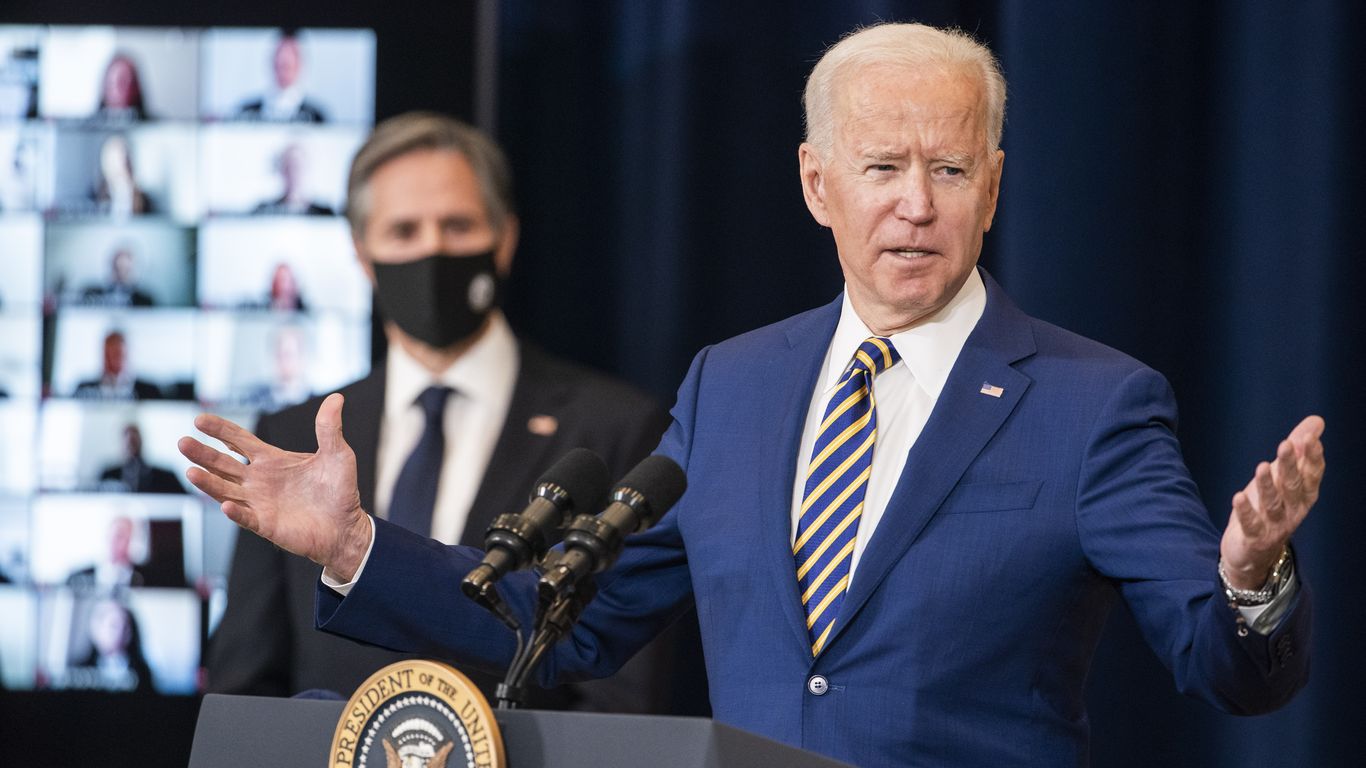In a sign of the urgency President Biden feels about Iran, the White House is convening a National Security Council principals committee meeting Friday focused on the country’s nuclear program, people familiar with the matter tell Axios.
Why it matters: The Biden administration is still refining its strategy about how to resurrect the 2015 deal that President Trump backed out of in 2018, but it wants to work with allies to slow Iran’s effort to enrich uranium and prevent an arms races in the Middle East.
- Principals committee meetings — held in the Situation Room and attended by the secretaries of Defense and State and other key national security players — are designed to discuss policy at the highest level before presenting recommendations to the president.
- They are preceded by a meeting of the deputies from all the national security agencies. On Wednesday, deputy national security adviser Jon Finer led one such session focused on the Middle East.
- One of the main action items Friday is whether to push toward returning to the nuclear deal before the June presidential elections in Iran or wait until after, a source familiar with the issue said.
- The State and Defense departments declined to comment. An NSC spokesperson did not respond to a request for comment.
Driving the news: Secretary of State Tony Blinken is also scheduled to have a virtual meeting Friday with the foreign ministers of the United Kingdom, Germany and France, with Iran on that agenda, too.
- During Thursday’s White House press briefing, national security adviser Jake Sullivan hinted at the administration’s coming diplomatic push on Iran.
- “We are actively engaged” with European partners, he said. “The consultations will produce a unified front when it comes to our strategy.”
The intrigue: During a visit to the State Department later Thursday, the president didn’t mention his efforts to resuscitate the nuclear deal, a signature achievement of the Obama administration’s then-Secretary of State, John Kerry. Most congressional Republicans heavily criticized it, and Trump later bailed out of it.
- Biden did announce the U.S. would no longer support Saudi Arabia in its military offensive against the Iranian-backed Houthis in Yemen’s civil war.
- However, he pledged to continue to supply the Saudis with defensive systems, citing “threats from Iranian-supplied forces in multiple countries.”
The big picture: After withdrawing from the deal in 2018, Trump reimposed sanctions on Iran. His “maximum pressure” campaign, led by Secretary of State Mike Pompeo, targeted its oil exports and central bank, aiming to force Tehran back to the negotiating table.
- Nonetheless, Trump couldn’t persuade other members of the original agreement, including China, France, Russia, the U.K. and Germany, to reinstate the sanctions.
- The Iranians also hunkered down and waited him out.
- Last month, Iran announced it had increased its uranium enrichment levels to 20%, well above the agreement’s limit of 5% — a clear breach of the deal.
Blinken has asked his newly appointed Iran envoy, Rob Malley, to form a negotiating team made up of diplomats and experts with a range of views on the path forward with Iran, Barak reported Wednesday.
- Blinken even asked Malley to bring in people who are “more hawkish” on Iran, according to a source close to the administration.
Between the lines: Blinken has suggested Iran would first need to come back into compliance with the deal before the United States lifted any sanctions.
- “We are a long ways from that point,” the secretary said last week.
